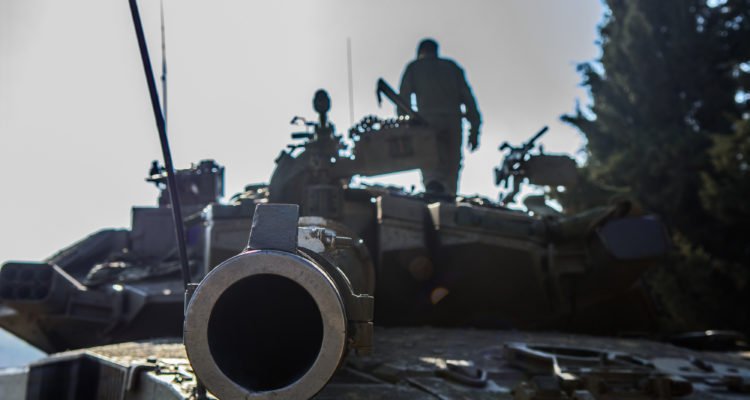Commander of IDF troops who will face Hezbollah: “The next war will be very challenging and I think we are ready for it.”
Since the 2006 Lebanon war with the Iran-backed Hezbollah terror group, the Israel Defense Forces has been revamping and revising and says it is ready for any future confrontation on its northern border, Makor Rishon reported Monday.
IDF Lt. Col. Yoav Schneider knows first-hand that Israel has to be more than ready to quickly defeat Hezbollah. In 2006 he was seriously wounded and his tank crew was killed by a Hezbollah rocket.
Schneider recovered, and the career soldier has channeled all his energy and the lessons learned along the way into being more than prepared as commander of the 82nd Battalion of the 7th Brigade of the Armored Corps.
In a behind-the-scenes interview, Schneider told Makor Rishon that one of the big changes was how the IDF handles field intelligence.
“In order to understand the picture, we need to see the forward command center located here in the Golan Heights,” Schneider said, explaining that soldiers from all units sit in one room with all data screens visible to everyone, resulting in “a tremendous brainstorming session.”
The nature of a future conflict with Hezbollah will be very different.
“This war will look more like the Yom Kippur War and the Six Day War together” in the intensity of the battle, casualties and “great chaos,” said one of his senior officers.
“It’s just that since the Six Day and Yom Kippur wars, the whole world has changed, and so has the IDF,” he noted.
Schneider pointed out that in the 2006 war “we had the intelligence, it just didn’t move into the field.”
Since then the IDF has developed a new system that connects all units and quickly transfers the relevant information down to fighters in the field.
The new method produces a “synergy between the land forces and the rest of the IDF in the air, at sea and even in space.”
Instead of reporting up and down through a command chain, the new system can connect a pilot with a tank commander on the ground deep in enemy territory.
“In the Second Lebanon War, a lot of events depended on the speed of the intelligence getting down to the [battle] field,” he said. “That is exactly why this [new] system was invented.”
Schneider, 35 and now married with three children, says his near-death experience in combat and his recovery and return to service “makes me get up every morning and prepare my battalion for the next war.”
“I chose to live and fight,” Shneider said. “I did not give up on myself… It was not for closing a circle, or for coming back to take revenge,” he explains. “It was mainly to recover.”
Schneider says the biggest goal in a future war is to damage Hezbollah, destroy the organization’s infrastructure, and eliminate its capabilities to target rockets at Israeli civilians – a standard Hezbollah practice that violates international law.
Hezbollah’s huge arsenal of rockets supplied by Iran has “no hermetic solution, but the threat has grown over the last 20 years and we need to address it.”
“Our capabilities are much higher,” he explained. “We are in a much better place.”
While Israeli air power will be needed, Schneider knows that “feet on the ground of the enemy” will be decisive.
“The IDF can defeat Hezbollah and it depends on battalions like me. It is a combination of many missions of all the battalions. And each battalion has its responsibility to meet this mission,” he said.
He admits that in the 2006 Lebanon War “the enemy knew how to leverage his small successes and say ‘I won,’” but Schneider says that if war breaks out, the IDF will move quickly to inflict heavy casualties on Hezbollah, destroy its infrastructure and give a very different outcome.
“The next war will be very challenging and I think we are ready for it. “
(World Israel News).
